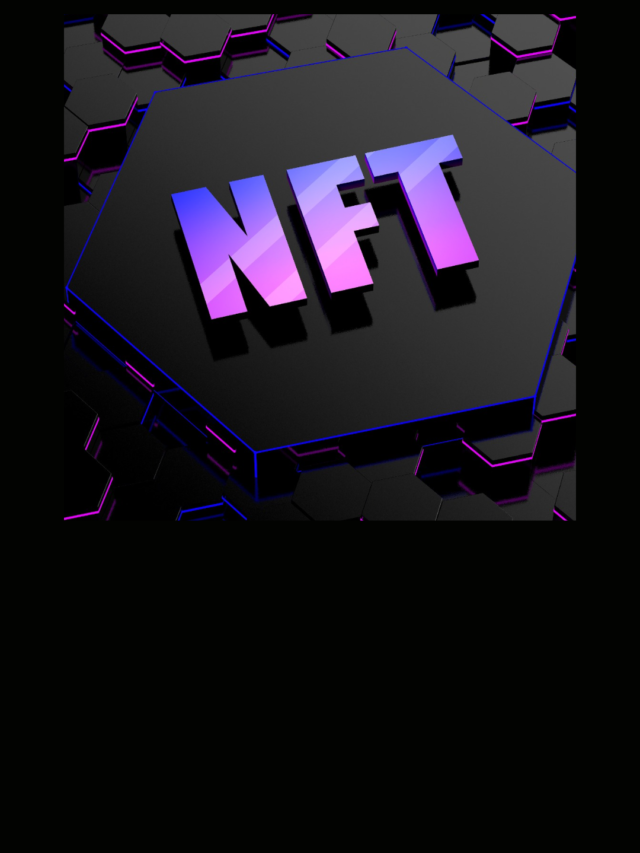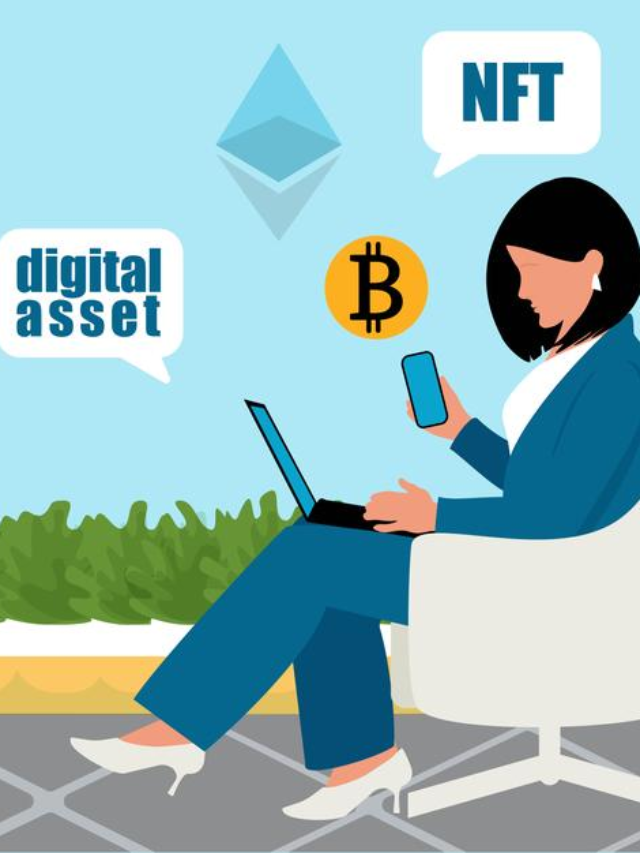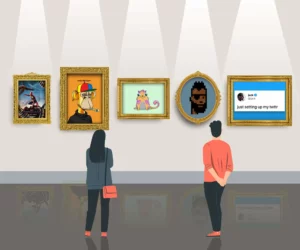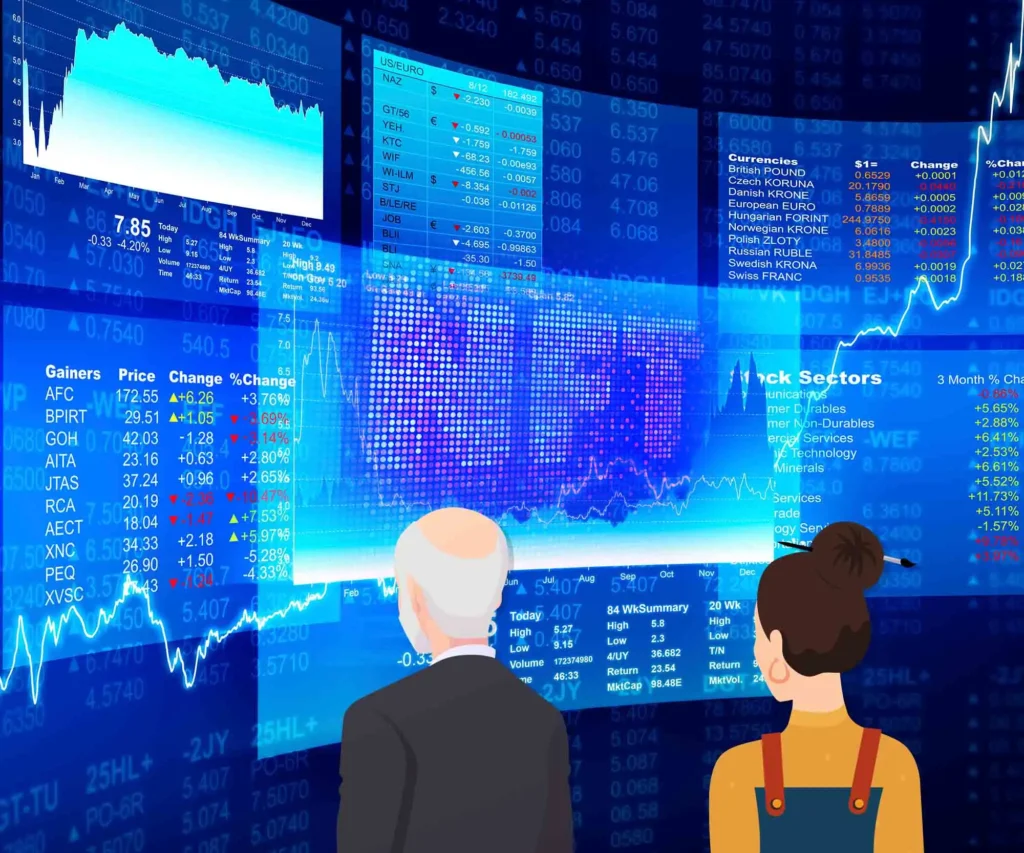
As discussed earlier, NFTs are unique, irreplaceable assets—hence the name ‘non-fungible tokens’. This article will discuss NFT trading and minting: how you can enter the NFT marketplace and create NFTs.
NFT trading: where to start, what to know
Like cryptocurrencies, NFTs also use blockchain technology. Proof of ownership of the NFT is recorded on a blockchain, making NFTs tradable to all the users on that particular blockchain network. While you can buy, sell, or barter NFTs like any other commodity, they differ from cryptocurrencies. Since NFTs are one-of-a-kind, solitary assets, you can only exchange them with entirely different assets. However, trading NFTs may be slightly trickier because their value lies in the existence of only one original rendition.
Due to their high demand, it is common to auction off NFTs. For those of you who don’t think auctions are your cup of tea, there are several NFTs available at fixed costs as well. However, if you want to be a successful trader of these tokens, learning to navigate an NFT marketplace is paramount.
NFT marketplace
NFT marketplaces are niche online spaces with platforms where users can sell, buy, and create NFTs of their choice. This process of making an NFT is called ‘minting’, but more on that in just a bit. The most specialised marketplaces sell digital art or, in some cases, tools used in online games. Currently, OpenSea is the marketplace to watch. Having accounted for about 90% of the total market share of NFTs in 2021, it is proving to have an Amazonian (pun intended!) impact.
Most experts suggest that the best way to optimise your NFT sales is by scoping out the collections. In much the same way fashion brands release collections, NFT collections are a bunch of different digital assets that come under a particular theme. The theme of a collection may range from commonplace to bizarre, depending on what fascinates you. For example, one of the most popular collections is The Bored Ape Yacht Club (BAYC), which is just a motley arrangement of wry-looking apes. Some of the owners of BAYCs include Justin Bieber, Eminem, Timbaland, and Paris Hilton. When writing this article, the cheapest available bored ape is worth $420,000! Though this collection was launched just about a year ago (April 2021), it is definitely dominating the market. It now has around $2.5 billion in sales and a 12% market share of the total NFT market.
How to mint NFTs
As promised earlier, here is your mini step-by-step guide to minting or creating NFTs.
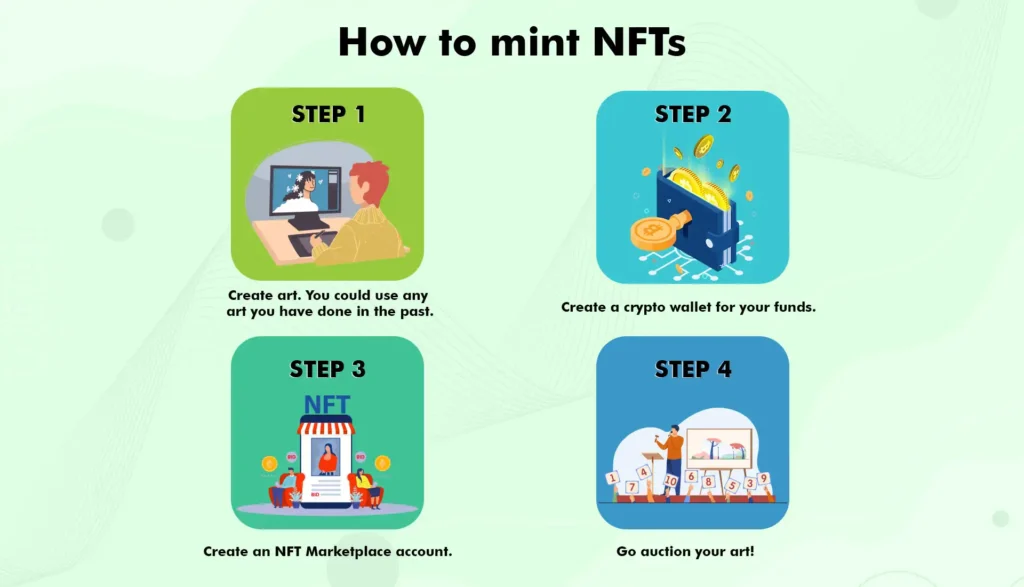
In Step 3, when you create your own NFT marketplace account, it is necessary to understand what fits your requirements. For example, OpenSea allows artists to mint for free and extracts the service fees from the collector. On the other hand, Mintable is free but may take a cut if your art sells. And when you finally auction your art, don’t forget to transfer the copyright and put some labels and descriptions.
Should you invest in NFT trading?
While making and auctioning NFTs may not seem challenging, is it time for the average user to enter NFT trading?
Unlike cryptocurrencies, NFTs are a relatively newer, much less explored domain of virtual assets. Many bigwigs like banks, big tech with their complex algorithms, hedge funds, etc., have not seriously entered the arena yet. Being an evolving form of creating, selling, and buying copyrighted items, many pricing and policy-related changes in the conduct of these transactions are likely, particularly if ‘big money’ were to enter the game. Experts predict that large companies will cash in on the NFT craze sooner or later, leaving the small fish powerless. It may then be wise to consider NFTs as a serious investment option.
However, here is some data that might indicate the flip side. According to the 2021 NFT Market Report by Chainalysis, only 44% of the total trades in NFT make money. This includes only a marginal fraction of the total number of NFT traders. Moreover, the report also states that most traders who buy NFTs for their resale value lose money, with only 29% managing to make profits. The reasons range from fraud to mismanaged cryptocurrency funds and beyond, especially in the case of uninformed traders.
Murky as these numbers seem, whether investing in NFTs will fetch gains is anybody’s guess. As we often advise, fad or not, it is best to venture carefully.
